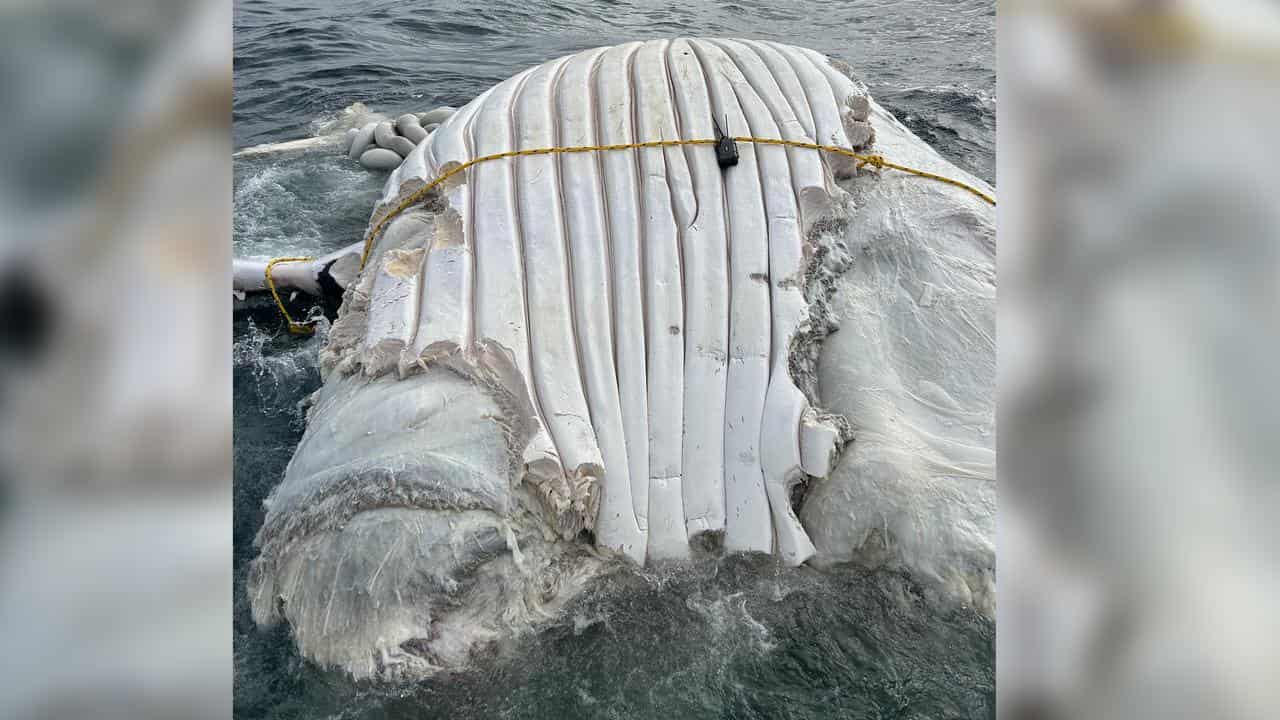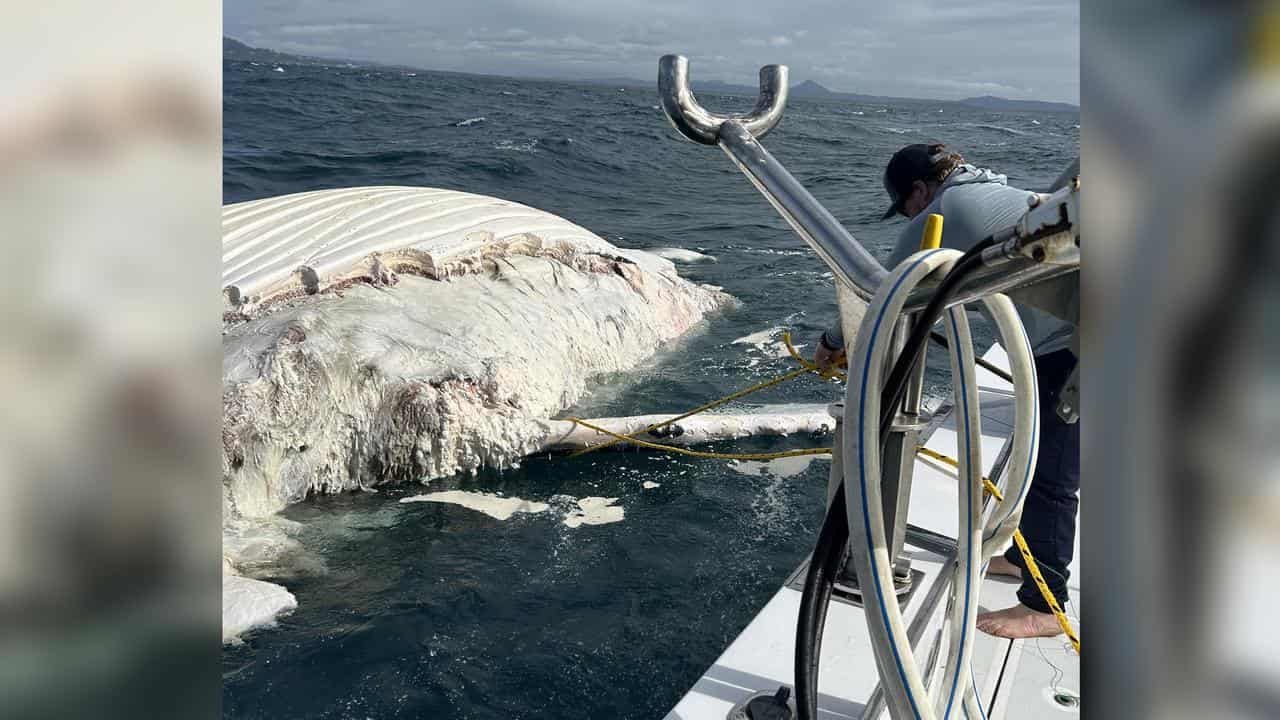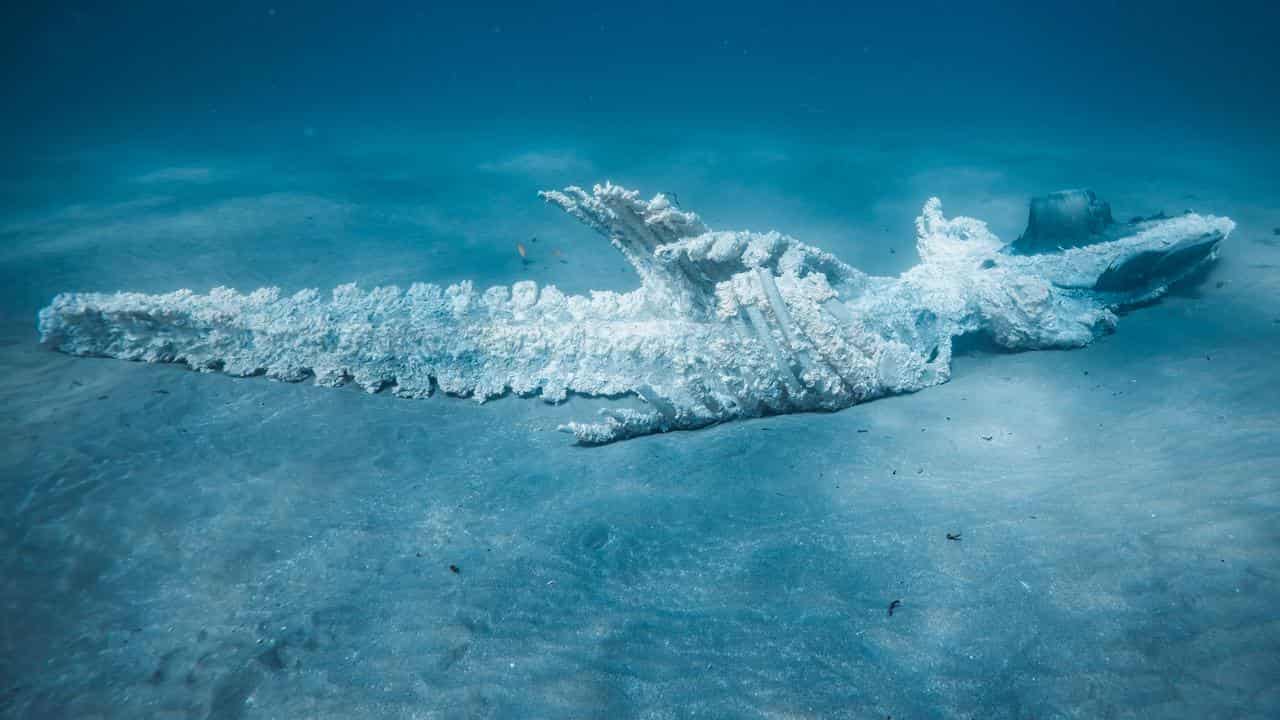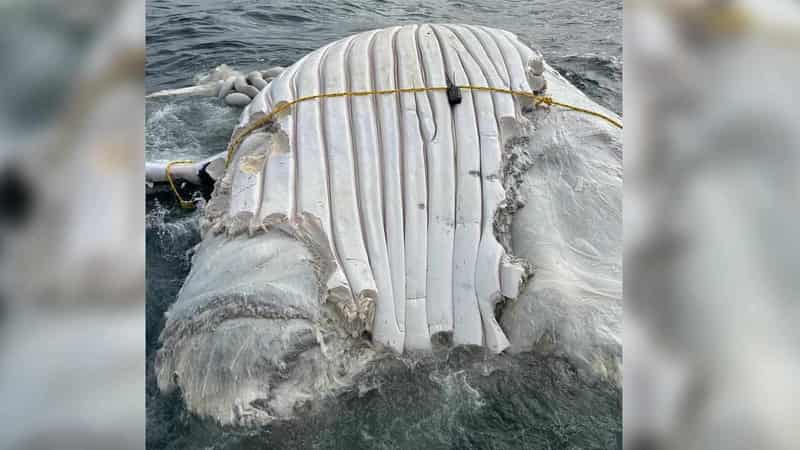
When whales strand or wash up dead on Australia's picturesque beaches, authorities are left with a colossal mess to clean up.
Typically the solution is to truck their hulking carcasses away and bury them.
It's costly and laborious work as West Australian authorities found in December when a sperm whale weighing more than 30 tonnes died on a sandbar south of Perth.
But it also robs the ocean of valuable food for sharks, sea birds and other creatures.
That's why Griffith University whale expert Olaf Meynecke is campaigning for a switch to disposals at sea and he's developed a predictive tool to reduce the risk of rotting carcasses washing back to shore.
When a humpback died off south east Queensland coast last year - likely from a ship strike - Dr Meynecke seized the opportunity to work out how factors such as wind, ocean current and predation influenced where it ended up.
The lolling carcass was repositioned 30km offshore and fitted with a satellite tag that tracked its movements for six days, before it sank to the sea floor.
In the first few days, wind was the main thing driving its drift. That made sense given the whale was still bloated and protruding from the water.
But after that things changed. Decomposition, the release of gas and predation by sharks left the carcass lower in the water and the current took over as the primary driver.

Dr Meynecke says authorities worldwide have been reluctant to opt for sea disposal as experience has shown remains can just wash back in again, often bringing hungry sharks with them.
But his predictive tool that factors in the drivers of drift means carcasses can be towed to safe locations where that's highly unlikely to occur.
"As we’ve seen more and more whales stranding on Australian beaches in past years, the effective, safe and culturally sensitive removal of whale remains near or on public beaches has become a major issue," he says.
"Our study shows that forecasting of where whale remains might end up when floating at sea is possible with surprisingly high accuracy."
He hopes to refine his tool by fitting more trackers to dead whales when opportunities arise.

"There are lots of nutrients in a whale and keeping them in the ocean is very important. One very obvious benefit is food for sharks and sea birds that will feed on a carcass, but also deep sea creatures and microorganisms.
"Eventually, when it sinks to the bottom it can sustain marine life for more than seven years, maybe even longer.
"Offshore disposal can be an ethical, cost effective and safe option if managed appropriately."
The study has been published in the peer-reviewed Journal of Marine Science and Engineering.









